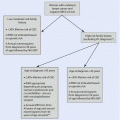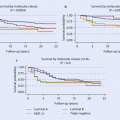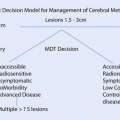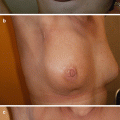Fig. 59.1
Four-category model of attachment
Each mental model varies from positive (trust in others: confidence in self) to negative (distrust of others: anxiety about self) and shapes individuals’ expectations about relationships, with one «secure» attachment style and three «insecure» attachment styles. In healthcare specifically, insecure attachment style has been found to pose a threat to physical health in terms of factors such as altered stress physiology, unhelpful health attitudes [61, 62] and lowered treatment adherence [63, 64].
Childhood Abuse: childhood abuse can impair the formation of a secure attachment style. Unfortunately, childhood abuse (sexual, physical and emotional) is prevalent. Worldwide, the prevalence of childhood sexual abuse in non-clinical populations has been found to be as high as 53% for women [65–67]. Physical and emotional abuse is also common. Research has reported an association between the experience of childhood abuse and a wide range of adult psychological difficulties including depression, anxiety, post-traumatic stress disorder, personality disorder, alcohol and substance abuse, obsessive compulsive disorder and low self-esteem [68]. It has also been associated with considerable interpersonal difficulties [69].
People with a history of childhood abuse are more vulnerable to psychological distress following a diagnosis of breast cancer [70]. A study specifically investigated whether childhood abuse explained some of the variability in emotional problems following surgery for breast cancer [19]. Sexual, emotional and physical abuse were recalled by 10%, 25% and 28%, respectively. Overall emotional distress, post-traumatic stress symptoms, self-blame and shame were present in 49%, 8%, 22% and 13% of women, respectively, and each problem was more common in women who recalled one or more forms of abuse. Moreover, sexual and emotional abuse were specific risk factors for emotional distress, whereas emotional and physical abuse were specific risk factors for post-traumatic stress symptoms. These findings imply that emotional problems following breast cancer can arise partially from factors which predate the illness, suggesting that the presence of childhood abuse is a significant risk factor for emotional distress following breast cancer.
Social Support: Studies have consistently reported a positive association between social support from friends/family and psychological adjustment to breast cancer [71, 72], along with evidence to suggest that feeling supported by the clinicians involved in their care is also a vital component to psychological outcome in breast cancer [73–75]. However, due to their early history and insecure attachment style, patients with an adverse childhood history feel more isolated, have difficulty forming trusting relationships and feel less well supported by family [76], spouses [77] and friends [78]. In breast cancer patients, Salmon and colleagues [79] and Clark and colleagues [70] specifically measured the patient–surgeon relationship and found that women reporting childhood abuse were seven times more likely to feel incompletely supported by their surgeon than other patients. In reciprocation, surgeons reported experiencing these patients as more difficult to help. Additionally, holding a negative attachment model of self («I am not worthy of support») mediated their perception of incomplete support, suggesting that attachment processes are activated during the clinical relationship. It can be theorised that when people feel threatened by mortal disease, clinicians whom they regard as having the authority and power to protect them evoke the attachment models of self and others that have been shaped in early childhood. This may also apply to the relationship with other clinicians involved in the patient’s care [80].
Summary Points
There are patient factors which can increase the likelihood of long-standing, clinically significant distress in cancer survivorship. Two of these factors are poor body image and early childhood abuse history.
Breast cancer treatment can negatively affect a woman’s body image.
Sexuality, intimacy and relationship with a partner are frequently associated with body image concerns in the breast cancer survivor.
Poor body image post-treatment has been linked to greater overall psychological distress and lowered quality of life.
Open communication, partner empathy and support were all found to increase women’s psychological well-being and perception of body image and sexuality.
Each person brings their own life history to the breast cancer diagnosis and consultations.
The experience of abuse in childhood is a significant risk factor for emotional distress following breast cancer and the inability to access support or feel supported by professionals.
Attachment theory can provide a helpful framework for understanding how factors which predate a cancer diagnosis can influence a person’s response to the challenge of cancer and influence the patient–doctor relationship.
Case 3: Poor Body Image Following Reconstructive Surgery
Holly, aged 37.
Background
Holly was diagnosed with breast cancer 18 months ago. She underwent mastectomy, implant-based reconstruction, chemotherapy and radiotherapy. Unfortunately, Holly suffered complications following reconstructive surgery resulting in implant loss. She is in the process of having this rebuilt, but Holly reported to her surgeon that she «hates» her appearance. She avoids looking at herself in the mirror as she is «repulsed». Holly has been married to Damian for two years and reported that they were still in the «honeymoon phase» of their relationship when she was diagnosed. They have not been intimate since the diagnosis, and Holly will not allow him to see her without clothes. Though Damian has been very supportive, they never talk about sex, and Holly feels that he does not find her attractive anymore as he does not initiate any intimacy.
Psychological Understanding and Intervention
Holly has had a challenging experience with reconstructive surgery which is still ongoing. The fact that the cancer and treatment occurred at the life stage when Holly was newly married makes her relationship a key factor to her overall adjustment. Holly reported that the relationship was in the honeymoon phase and for them, sex and intimacy had been central. The sudden loss of this was naturally upsetting for them both. Several factors will be exacerbating the difficulties at the moment: Holly’s feelings about her appearance, her perception that Damian no longer finds her attractive and their lack of communication.
Psychological intervention would aim to increase their communication in the first instance. Often couples engage in a «conspiracy of silence» [55] whereby each does not bring up a difficult subject for fear of upsetting the other. A session for both Holly and Damian to talk openly would be helpful and facilitate the pathway for sexual renegotiation at a level which feels appropriate for them both. Individual work with Holly focussing on her feelings about her body would also be advised.
Case 4: Difficulties in Supporting a Patient
Jane, aged 66.
Background
Jane was diagnosed with breast cancer six months ago and had undergone mastectomy, reconstruction and chemotherapy. Her clinical team reported that she had been given what they perceived to be a good level of support and information. The team noted that Jane had asked few questions and often they could feel «dismissed» by her, but she had reported no problems. However, Jane had attended a clinic appointment and «out of the blue» had reported dissatisfaction with her care, the support received and the outcome of her reconstruction. The clinical team consequently felt «confused» and unsure how to support her. Jane had a prior history of severe depression and lived alone.
Psychological Understanding and Intervention
Jane’s interpersonal functioning and depression history would be suggestive of difficulty prior to her breast cancer diagnosis. Her relations with others, such as rejection of support and dismissive attitude, can be indicative of an insecure attachment style.
Psychological therapy could be offered as an option for her to build an understanding about interpersonal patterns and help her access the care she needs. Intervention could also potentially help guide the clinical team as to how to best support her. Joint working with her clinicians and GP would also ensure that her emotional needs were met alongside treatment for breast cancer.
59.4 What do breast cancer patients value from their clinical communications
Communication between physician and patient is complex and goes beyond merely giving adequate information and choice; both physician and patient play their part as the provider and receiver of care, respectively, but in addition bring their own enduring characteristics into the consultation. This complex interplay determines the ultimate outcome of a patient-centred consultation which should leave the patient feeling listened to, understood and supported by the clinician. A large body of literature has examined, from the patient perspective, what elements need to occur in a consultation to enable this outcome. Some of the key areas are discussed briefly below.
Good interpersonal communication during consultations has been linked to less overall psychological distress [81–83]. Research in this area has claimed that meeting patients’ informational needs by providing information and discussing treatment options is a standard and fundamental aspect of cancer care [84]. However, some evidence suggests that patients require clinicians to do much more in a consultation than just meet their informational needs. Findings from a large-scale study with breast cancer patients and clinicians suggested that patients valued a close relationship with their clinician [85]. Indeed, 81% of patients in that study indicate that trust in their physician was an important component of their care.
Meeting breast cancer patients’ communication needs has been reported to be important to the success of the consultation. One qualitative study reported that positive experiences of communication were related to the clinician taking the time to build a relationship, appearing unrushed, a willingness to answer questions, responding sensitively to feelings of vulnerability and distress, offering hope, recognising the patient as an individual and an awareness of the impact that cancer may have had on the patient’s psychological well-being [86]. The authors highlighted that the importance of a sense of collaboration and information sharing facilitated the perception of a working relationship leading to positive feelings of mastery and «control» over the illness. The importance attached to communication skills and «building» a relationship being what patients value has varied in the literature. Findings from another qualitative study of breast cancer patients [87] suggested that breast cancer patients were not primarily concerned with doctors’ communication skills, but rather with doctors’ enduring characteristics. Specifically, they valued doctors whom they believed were technically expert, had formed individual relationships with them and respected them. They therefore valued forms of communication that are currently not emphasised in training and research, whilst the «technical» aspects of current communication training were valued less. Recent research findings have also questioned the idea of whether the relationship between breast cancer patient and surgeon is «built» or rather is present from a very early stage, based on the need for attachment (which can be provided by the clinician) at a time of existential threat with a breast cancer diagnosis [88].
The responsibility for the success of the consultation, and the degree to which patients are satisfied with the care they receive, is often placed firmly with the doctor and their communication skills. However, this view is oversimplistic as it does not take into account the patient factors outlined in this chapter which also influence the breast cancer patient–doctor relationship. Additionally, it does not take into account the role that the surgeon has from the start as the person who can help the patient in such a fundamental way when they are facing a life-threatening illness [88].
The key messages from these studies indicate that patients value the interpersonal aspects of their consultations and the behaviour of the clinical staff greatly contributes to how supported and cared the patients feel. Having their needs responded appropriately can increase trust, having the option to accept or reject treatment recommendations denotes respect, and taking time to respond to emotional concerns or engaging in what appears to be an individual act uniquely for the patient can signify a personal connection.
59.4.1 Summary Points
The interaction between the patient and clinician during clinical consultations has a significant influence on the patient’s overall breast cancer experience.
Good interpersonal communication during consultations has been linked to less overall psychological distress.
An important factor for patients is not just how clinicians communicate but also their personal attributes and personality traits.
Some patients value a collaborative working relationship during clinical consultations.
Interpersonal aspects of the consultation are valued, and the behaviour of the clinical staff greatly contributes to how supported and cared the patients feel.
The patient brings their life experience to a clinical consultation which can affect how easy or difficult they find it to be supported by the clinical team and how easy or difficult they find it to feel satisfied with the care they receive.
Doctors need excellent communication skills in order to provide good clinical care, but the patient factors outlined in this chapter also influence the breast cancer patient–doctor relationship.
References
1.
Coleman MP, Quaresma M, Berrino F, Lutz JM, De Angelis R, Capocaccia R, Baili P, Rachet B, Gatta G, Hakulinen T, Micheli A. Cancer survival in five continents: a worldwide population-based study (CONCORD). Lancet Oncol. 2008;9(8):730–56.Crossref
2.
Mehnert A, Brähler E, Faller H, Härter M, Keller M, Schulz H, Wegscheider K, Weis J, Boehncke A, Hund B, Reuter K. Four-week prevalence of mental disorders in patients with cancer across major tumor entities. J Clin Oncol. 2014;32(31):3540–6. JCO 2014.Crossref
Stay updated, free articles. Join our Telegram channel

Full access? Get Clinical Tree







